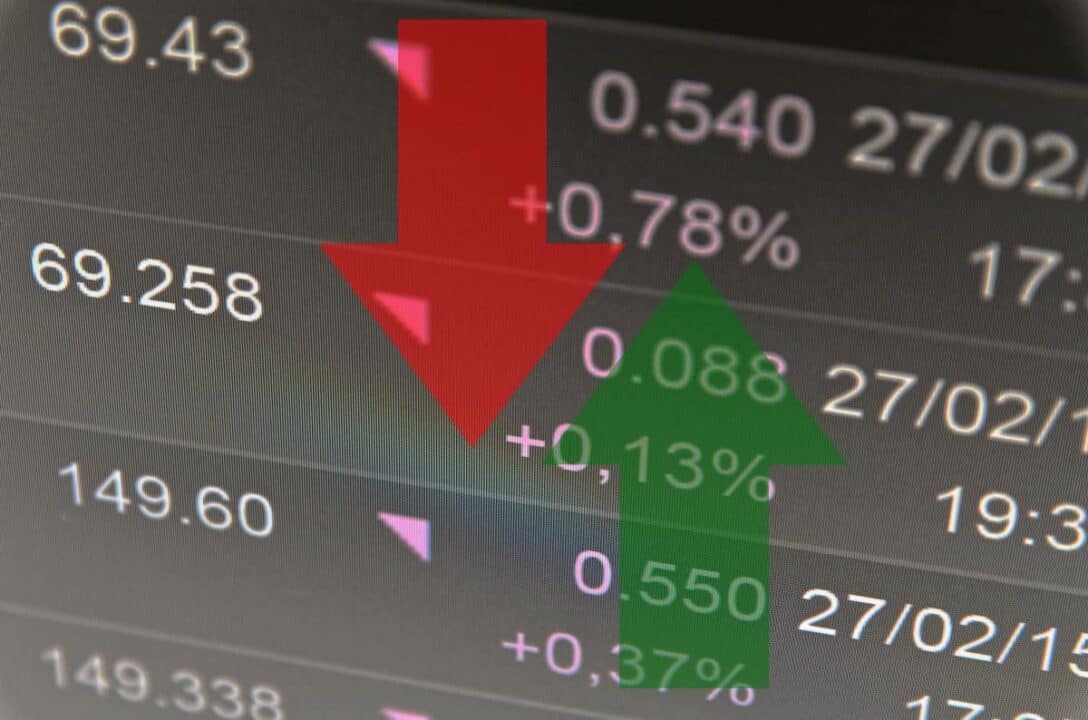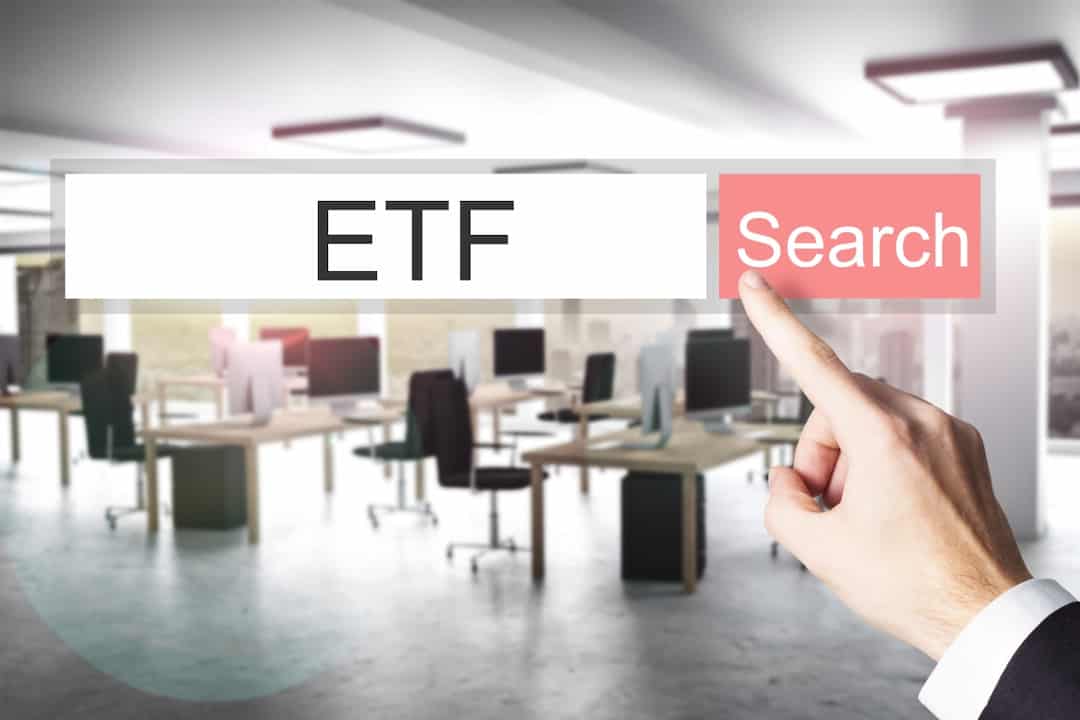ETFs in Canada are growing as a popular investment option for good reason. Canadian ETFs are similar to mutual funds – as is options trading – but are actively managed and traded like individual stocks. This combines the benefits of mutual funds and bonds with those of individual stocks. While ETFs are not able to guarantee a fixed income, there are more stable options such as the best Canadian ETFs.
The best ETFs will bring you a high return over a certain amount of time. There are many different features and aspects to look for in a top ETF. Ideally, you want to find ETFs that match your approach to investing as well as ones that grow in value over time. To help you build a balanced ETF portfolio, we take a look at some of the best ETFs in Canada (see the best bank ETFs, best energy ETFs in Canada, and top oil ETFs).
Our recommendation:

Some of our top picks include Wealthsimple, Justwealth-RoboAdvisor, and CI Direct Investing-RoboAdvisor. These solutions use software to track and analyze investments. They are essentially virtual investment advisors to help you make the right decisions.
What is an ETF?
An ETF stands for exchange-traded funds. This type of asset allocation is similar to an individual stock with a diversity of mutual funds or bonds. An ETF is a collection of assets, stock, bonds, and more for investors to buy into. It is similar to buying shares of stock but requires less risk. Compared to mutual funds, the investment comes at a low cost.

Best ETFs in Canada: A Guide to Investing in ETFs
There are a number of different aspects to consider when building your ETF portfolio. Some things to look for in a good ETF include:
Diversity and Asset Class
There are a wide variety of different asset classes within EFTs that can help to diversify your portfolio. These include bond ETFs, or fixed income, equities, commodities, preferred stocks (see best silver stocks, too), real estate ETFs. The best Canadian ETFs span a wide range of asset classes, which help to provide a better investment.
Low Cost MER
Like a mutual fund, EFTs companies or investment teams manage your investments. This means that there will be a fee charged for the management that tracks the performance of the commodities. Companies charge MER or management expense ratio for the cost in taxes and operating fees. A standard MER for Canadian companies is somewhere around .25%-.75%.
The lower the MER cost, the more money your keep from your ETFs to continue to invest. The best ETFs in Canada have a low MER fee and bring high returns. Typically, MERs for EFTs are already lower than those of mutual funds.
Annual Return
Looking at the annual return of an ETF shows you how much income the ETF can bring. When looking at this data set, it is important to note that the longer the ETF has been on the market, the more accurate the annual return is. For newer ETFs, the annual return data is often skewed based on current performance, since the data set is small.
Underlying Investments
ETFs have a range of asset classes which means it is important to determine what comprises the ETF. The idea of an ETF is to have a large range of commodities that bring diversification. This makes the investment less risky even if the market fluctuates in one area or company.
To determine what makes up the ETF you want to buy into , look at how many shares it owns of other companies. ETFs that track the S&P 500 Index ETF and P TSX 60 Index hold shares in large publicly traded companies. This means that you are buying into ETFs that hold shares in stable companies that are likely to grow – see also Canadian best preferred shares which guarantee long-term stability.
Why Invest in ETFs?

ETFs are growing in popularity since it is a low-cost investment, and is simple to get started with. Some benefits of investing in an ETF include:
Tax Benefits– Unlike other investments, ETFs are only taxed when you sell the investment. It is similar to selling an individual stock on the stock market. Whereas other assets under management such as mutual funds include taxes throughout the investment.
Availability– ETFs are also easy to navigate and access easily on an exchange market. Like on the stock market, the ETFs holdings are transparent to the public. An ETF performs like an individual stock with the added benefits of mutual funds.
Diversity– Perhaps one of the main benefits of an EFT is diversity. It has a low expense ratio while spanning a broad range of industries and commodities. Not only does this give you a high-growth ETF portfolio, but also a lower-risk investment.
How ETFs Can Help You Get Started in Investing?
ETFs are a great way to get started in investing since it is much easier to access than other investments. There are also a wide range of different ETFs such as bond ETF Canada, dividend ETFs, equity ETFs, and much more to fit your financial goals. They are also less costly than other investments.

Choosing the Right ETFs for you.
There can be certain aspects to beware of when choosing the right ETF for you. The costs for an ETF are typically lower. However, they still range depending on the fund, issuer, and demand of the ETF. Even ones from the index may have varying costs.
There are also different types of ETFs that may be more suitable to your lifestyle. Some ETFs are passively managed (see ‘Best Robo Advisors in Canada‘), whereas others are actively managed. The passively managed ETFs track an index and base decision off of the index performance. For those that prefer a hands-on approach, there are managers that track your ETFs daily. This is similar to a mutual fund, but note that the fees are likely higher.
How to Make Your ETF Investment Work for You?
While ETFs are a lower-risk option than individual stocks (see ‘How to Find Undervalued Stocks‘), you still need to do thorough research on which ETFs to buy. Once you buy into the right ETFs, you can let the investment work for you. If you find that you do not have time to manage these investments, there are financial advisors available to help you.
What is the Best ETF in Canada?
There is no straight answer to simply the best ETF in Canada, but we do have some top contenders. These ETFs have brought in high returns that grow stably. Some of our top picks for best ETFs include:
- Vanguard S&P 500 ETF– The Vanguard S&P 500 ETF has a wide range of asset allocation and follows some of the top U.S. companies. The ETF has holdings in some of the most stable companies including Microsoft, Apple, Google, and Facebook. The ETF allows for stable investment growth and brings in high dividend yield and returns.
- Ishares Core S&P– Ishares Core S&P 500 is another solid ETF to invest in. The Ishares Core ETF is well-diversified and is a low-cost option that brings stable returns. The ETF follows large U.S. companies and large-cap stocks.
- Vanguard FTSE Canada– follows the performance of the All Cap Ex North America Index. The ETF matches the performance of large and small-cap companies and markets in Canada, Europe and the Pacific. Compared to the other top ETFs, the Vanguard FTSE focuses on Canadian companies.
- TSX 60 Index ETF/TSX Capped Composite Index– The TSX 60 Index follows the large-capital companies in Canada. Compared to the other top options, The S&P TSX Capped Composite Index ETF follows the Toronto Stock Exchange closely. It has a slightly smaller list of companies that it follows, but annual return data shows quality returns over time.
- BMO Aggregate Bond Index ETF– The BMO ETF follows the performance of the FTSE Canada UniverseXM Bond Index. The ETF brings a fixed income market that consists of a wide range of commodities. Another benefit of the BMO ETF is that it is a fund of a fund. This means the MER is lower due to the underlying funds.
- Some additional ETFs that may be worth looking into include the US Total Market Index ETF, Vanguard FTSE Emerging Markets All Cap Index ETF, and Vanguard FTSE Developed All Cap ex North America Index ETF. While slightly lower returns, these ETFs are still performing well.
The Bottom Line
ETFs are growing in popularity in the investment world for good reason. Although some of the terms can be confusing to some, they are much more acessible than other investment options. The best EFTs can bring you stable growth over time, and span a wide range of industries and companies.
Some EFTs focus on Canadian companies such as the FTSE Canada All Cap EFT, and others follow global companies such as the Total Market Index ETF. Depending on the emerging markets, and what your financial goals are, there is an EFT that can match your needs.